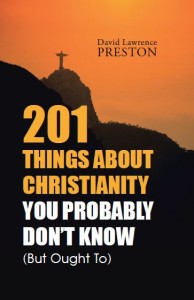Ten Easter Myths
Most leading historians, archaeologists and linguists are extremely doubtful that the four official Christian Gospels can be relied upon as accurate records of historical fact. For example, the Easter stories are highly dubious as factual accounts.
Easter is unquestionably the most important day of the Christian calendar. On Easter Day Christians believe their saviour Yeshua came back to life and was seen in corporeal form for several weeks before ascending on a cloud to ‘heaven’. This is the very basis of their religion.
They believe it because the gospels say it happened, or so they think. But most Christians aren’t aware of the inconsistencies in the scriptures.
Myth #8: The risen Yeshua appeared to hundreds of ordinary people
Paul of Tarsus claimed that the risen Yeshua appeared to over five hundred people. We have no way over verifying this number of people felt they had had this experience; however they all had one very important thing in common – Paul’s letters state that all were Christian believers.
Why? If the Jewish people as a whole, or both Jews and gentiles, were his intended audience, why not appear to believers and non-believers alike?
Psychologists tell us that we are just as likely to see what we believe as believe what we see. In other words, our beliefs colour our perceptions. There’s no verifiable evidence for a physical resurrection, just the words of a handful of devoted people keen to show that G-d vindicated Yeshua even though its chosen people had not recognised him as the Messiah?
It seems surprising to non-Christians that otherwise reasonable people in the 21st century should so readily believe tales such as these, but we should remember that closed communities tend to conform to the prevailing beliefs of the group, whether Christians, Scientologists, Muslims or Jehovah’s Witnesses etc.
Of course, the resurrection cannot be verified. You either believe that the gospel writers told nothing but the truth, or you don’t. (If you do, you still have to explain which of the conflicting New Testament versions you believe.)
Regardless of the facts, whatever you decide to believe is true – for you. That’s the way the human mind works.
©David Lawrence Preston, 1.3.2017
Follow me on Facebook and Twitter @David_L_Preston
Balboa Press 2015


Leave a Reply